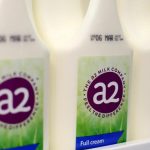
A dairy quota dispute between New Zealand and Canada is heading to mandatory negotiations.
This follows New Zealand notifying the Canadian Government and other Comprehensive and Progressive Agreement for Trans-Pacific Partnership (CPTPP) members that it has triggered mandatory negotiations. Under the CPTPP dispute settlement process, negotiations must commence within 15 days of notification.
Dairy Companies Association of New Zealand (DCANZ), representing milk processors, is welcoming the move.
In September last year, a Panel of Arbitrators ruled in favour of New Zealand, finding that Canada had breached its obligations under the CPTPP by blocking New Zealand dairy access. Canada has failed to comply with the ruling and under the Agreement the next step is for New Zealand to request formal negotiations.
Trade and Agriculture Minister Todd McClay says that NZ takes its obligations under trade agreements seriously.
“The CPTPP is one of the highest quality agreements signed by a group of like-minded economies,” McClay says.
“Parties to the agreement understood the commitments they were making when the agreement was signed, and it is important that they honour them.
“As a matter of principle, the New Zealand Government expects our trade partners to treat our exporters fairly and within the rules of our agreements. Canada is not doing that in respect to the dairy quotas that were negotiated and agreed with New Zealand.”
The policies implemented to date by Canada to allocate import licenses for the sixteen quotas that facilitate dairy access to Canada’s market under the CPTPP agreement have placed the lions-share of access into the hands of Canadian processors, most of whom use only a fraction of their quota allocation. This creates barriers and costs that limit other importers with a stronger interest in New Zealand products from getting quota licenses.
DCANZ executive director Kimberly Crewther notes that Canada’s market remains 95% closed to New Zealand dairy exporters outside of the import quotas.
“This heightens the importance of ensuring that New Zealand dairy exporters get a fair shot at exporting under the very limited market access that Canada agreed to in the CPTPP agreement,” she says.
“New Zealand needing to take yet another legal step to ensure Canadian dairy trade policy is in line with its trade obligations feels like Groundhog Day. But it is unavoidable as Canada continues to flout the commitments it made under the CPTPP agreement.
“We hope that Canada will come to the table with a genuine intent to preserve the integrity of the CPTPP agreement by complying with the rules. Trade rules and agreements are only as good as their implementation and so far, Canada’s disregard of its CPTPP dairy commitments has only served to undermine and diminish value,” Crewther says.
New Zealand has also decided to further pursue Canada for breaching its obligations under the CPTPP by blocking New Zealand dairy exporters’ access to the Canadian market.
“Canada can end this dispute by meeting its CPTPP obligations to us. If they continue to choose not to, they owe us compensation,” says McClay.
“Now, more than ever, it is vital that international agreements and the obligations they contain are honoured. As an exporting nation New Zealand relies on trade commitments and market access that were negotiated in good faith.”
You can now read the most important #news on #eDairyNews #Whatsapp channels!!!
🇺🇸 eDairy News INGLÊS: https://whatsapp.com/channel/0029VaKsjzGDTkJyIN6hcP1K



















